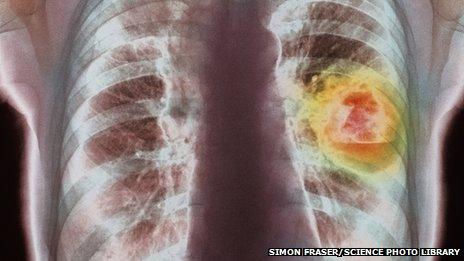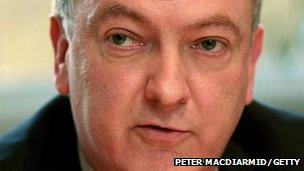Health Ombudsman to investigate more NHS complaints
- Published

Last year the Ombudsman only looked into 3% of complaints
The Parliamentary and Health Service Ombudsman is promising to investigate 10 times as many cases this year as it did last year.
It is in response to criticism about the number of cases the taken on.
The ombudsman is the final port of call for patients in England who are unhappy with a hospital's original handling of their complaint.
It says it will investigate around 4,000 cases within the next year but with no extra money or staff.
In 2012-13, the ombudsman received 16,000 complaints about the NHS.
It took a closer look at 3,770 of these and investigated 377, which was a 5% drop on the previous year.
Patients' organisations have criticised the small number of cases the ombudsman formally investigates - around 3% of complaints.
Sir Brian Jarman, an expert on hospital mortality data and Emeritus Professor of medicine at Imperial College London, said he was horrified when he looked at the number of complaints the ombudsman was investigating.
"The rest of them are effectively thrown into an electronic waste paper basket," he said.
"I was amazed that they didn't investigate more. We should use complaints as gold dust."
'Finding it difficult'
After she was appointed head of the PHSO in 2012, Dame Julie Mellor undertook a review of the organisation.
Following feedback from patients she decided to increase the number of investigations to around 4,000 a year but without any increase to the Ombudsman's £33m budget.
She said it was possible to work with their existing finances because they had changed the way they work.
"We're just doing it differently. Like other bodies we're doing more with less,"
But Charlotte Leslie MP, a Conservative member of the Commons Health Select Committee is sceptical this can be achieved.
"The more apologetic they are and the more they voice their failures, the more sceptical we become," she said.
"We have heard it all before, we actually need to see results."
She believes the organisation may just take the cases it has previously looked at and rebrand them as investigations.

Sir Bruce Keogh only wants the most serious complaints dealt with by the health Ombudsman
But Dame Julie Mellor says she does not agree, "In the past people were not getting a formal and final adjudication on their complaint and that's the big difference."
In September the Labour MP Ann Clwyd will present a report to the prime minister on how NHS hospitals investigate complaints.
Sir Bruce Keogh, the medical director of NHS England, believes the current system needs to change as the ombudsman is struggling to cope with the demands placed on it by patients.
He suggested it should only deal with the most serious complaints.
"If they don't get a decent response from the hospital they have to go directly to the ombudsman and the ombudsman in my view doesn't have enough capacity for that," he said.
Prior to 2009, hospital complaints could be taken up with the regulator, the Care Quality Commission (CQC), before going to the health ombudsman.
Sir Bruce believes it might be worth going back to this system again.
"We may ask the CQC whether they have an appetite for taking on complaints which trusts can't close satisfactorily and then giving the final say to the ombudsman only in really tricky cases."
- Published18 July 2013
- Published16 July 2013
- Published16 July 2013
- Published16 July 2013